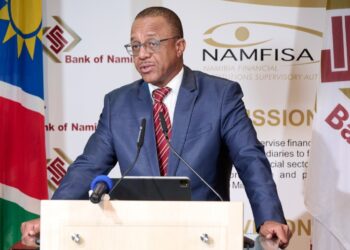
Alex Forbes Head of Consulting Joleen Mans says extensive research and close government-industry collaboration is critical before Namibia adopts the two-pot retirement system like South Africa.
The two-pot system allows individuals to access a portion of their retirement savings early, while still maintaining a significant amount for retirement.
“I think a lot of research needs to happen, and while we’re keeping our shades on and looking over the Orange River to our neighbour to see how they will smooth the whole process, hopefully, if we consider that. But I think research and consultations are definitely required,†she said.
She further emphasised the importance of involving industry players in the decision-making process highlighting that thorough evaluation of the system’s feasibility and potential implications for Namibians is paramount.
“Collaboration between government and industry is essential to ensure the success of any new retirement savings system,” she added.
As of 1 September, South Africans will have the option of partial withdrawals for emergencies from their retirement fund while protecting most of the savings for retirement.
All retirement contributions after this date will be split, with one third of contributions going to a savings pot and two thirds to a retirement pot.
This aims to address past challenges where people could cash out their full pension savings when changing jobs, leaving nothing for retirement.
Namibia currently does not have mandatory rules for saving retirement funds. To address this, the government proposed a law requiring people to keep at least 75% of their retirement savings invested. This is aimed at preventing financial hardship in old age by allowing savings to grow over time.
However, parliament has called on Finance Minister Ipumbu Shiimi to suspend implementation of the Financial Institutions and Markets Act (FIMA), specifically the pension preservation clause requiring 75% of pension funds to be held until retirement at age 55.
The Parliamentary Standing Committee on Economics and Public Administration recommended that the clause be put on hold and subjected to further scrutiny.
The committee, chaired by Natangwe Ithete, raised concerns about the constitutionality of the clause, which has drawn widespread criticism from various sectors of society.











